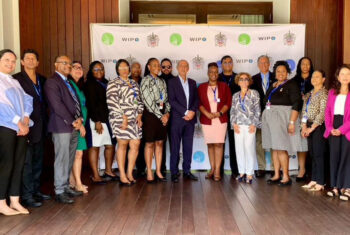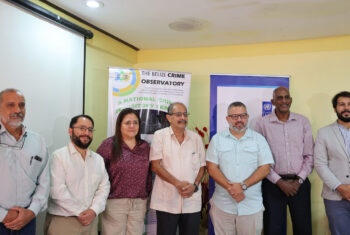September 8, 2020.
Ladies and gentlemen, good day.
Belize wishes to commend Jamaica and Canada for attempting this much-needed initiative to coordinate a global response to the catastrophic economic and financial impact of COVID-19. The actions we take now can help to ameliorate the impact of this catastrophe. But if we do nothing, or if our actions do not frontally address the economic consequences at their root, the economic and social impacts for people on the ground will continue to be tremendously negative.
Suffering is manifold worldwide. For the first time since 1998 the World Bank projects that the global extreme poverty rate will increase, effectively eroding progress that has been made. Far from being the great equalizer, COVID-19 is the magnifier of inequality. This is particularly hard felt in countries such as my own.
Belize, a tourism dependent, export-oriented country, suffered an abrupt economic shock when travel and tourism ceased in March. At least 20,000 workers in tourism alone lost their jobs in one go at the height of the tourist season; and agriculture immediately felt the impact as well because that market for fresh produce immediately disappeared. Twenty thousand in one sector may not sound like a lot, but for a small economy with a relatively small population, unemployment doubled from 10% to at least 20%.
The height of the pandemic in Belize coincided with the start of a predictably volatile Atlantic hurricane season. Over the past few years, Belize has been experiencing increasingly erratic extremes of drought and floods. Five days ago, Hurricane Nana bore down on southern Belize and severely damaged our export and domestic food crops, and damage assessment is currently underway. Before this hurricane, the IMF and World Bank were predicting GDP contraction for Belize in the region of 20% to 25%. To that we now have to add the impact of hurricane.
This is a reality that science predicts we are destined to suffer again and again. While we do not contribute to the changes that are increasing these climate events in both their regularity and intensity, we do carry the disproportionate burden of their impacts and consequential cost. SIDS are likely to experience GDP contraction in 2020 at three times the global rate as a result of the pandemic alone. Factoring for climate impacts, that contraction becomes all the more unpredictable and dire.
I challenge you all to step in our shoes, as uncomfortable as they are, and look at each of the policy options you have placed before us. Examine, when applied to SIDS, like Belize and the rest of the Caribbean in particular, that are facing the twinned crises of a pandemic and climate change, how these will expand our access to finance. Tell us how these will assist us to avoid being strangled by already high debt – which has to be compounding as we borrow to meet the added costs of meeting healthcare needs and minimal social safety nets for the unemployed and vulnerable populations. Demonstrate how these policy options will improve our capacity to stay on track to achieve our sustainable development goals and our ambitious climate targets by keeping our economies and our people alive.
In our assessment, these policy options give us little hope at this stage. Six months into the COVID-19 pandemic, our budgets literally have collapsed and there is no really predictable timeline for an economic rebound. Yet, the proposed policy options would have us, in the short-term carry an additional burden of even greater debt, or worse, enter into structural adjustment programs, when our economies have already been adjusted downward, our public sector revenues have collapsed while health related and social safety net expenditures have had to increase. In the medium-term we are directed to a variety of purported financial solutions, but these rely on goodwill and the financial backing of others who may well be too pressed themselves.
COVID-19 has exposed the inefficiencies of the global financial and economic systems in addressing global economic contraction and these options today suggest an unabashed affirmation of business as usual. They can be crudely narrowed to a choice of upholding markets at the expense of the public good.
The options we set forth now will be definitive of our people’s future. The options that will enable Belize and other SIDS to recover and do better, must include: access to liquidity for all SIDS on grant and concessional terms; debt workouts inclusive of private creditors; debt for development and debt for climate swaps; and recovery aligned with the Paris Agreement. To sidestep this imperative would be a disservice to all our future generations. What we need more than anything is the action to support our words or small island developing States will be tip toeing under the feet of the Colossus to find ourselves dishonorable graves.
Thank you.


